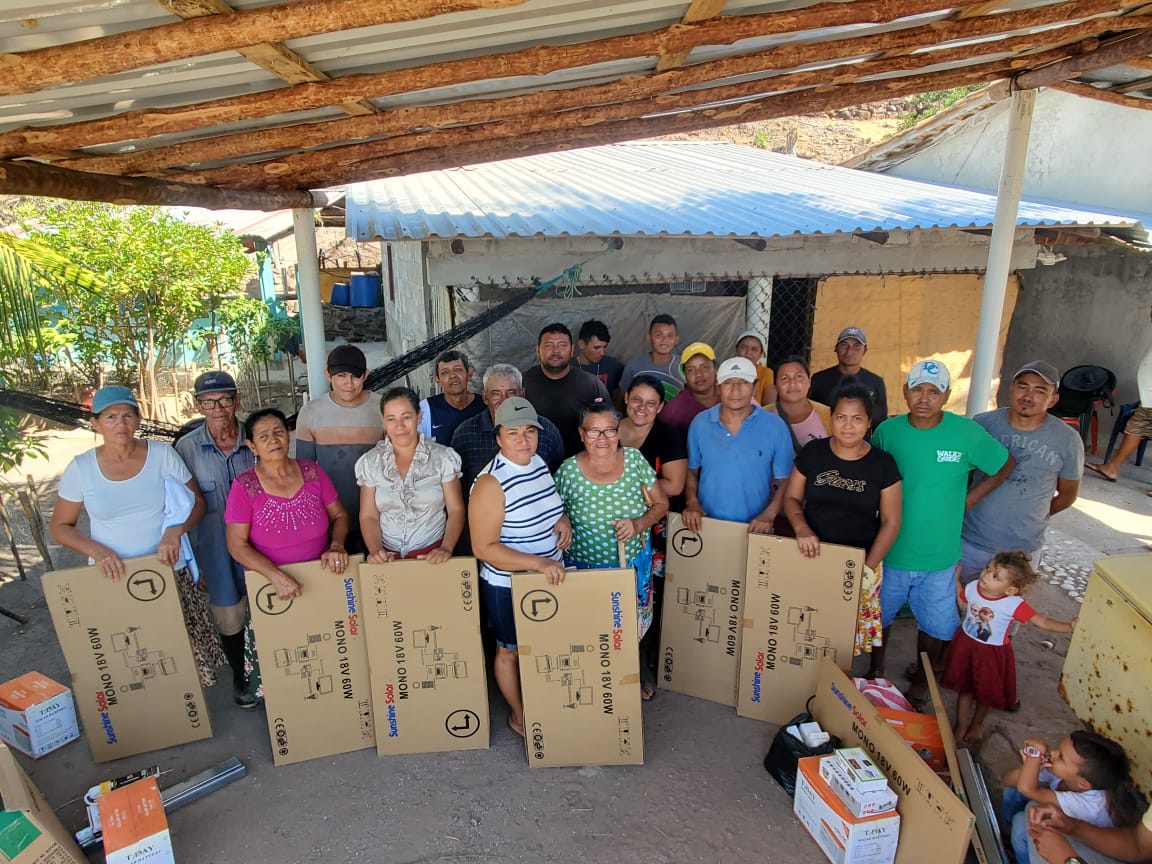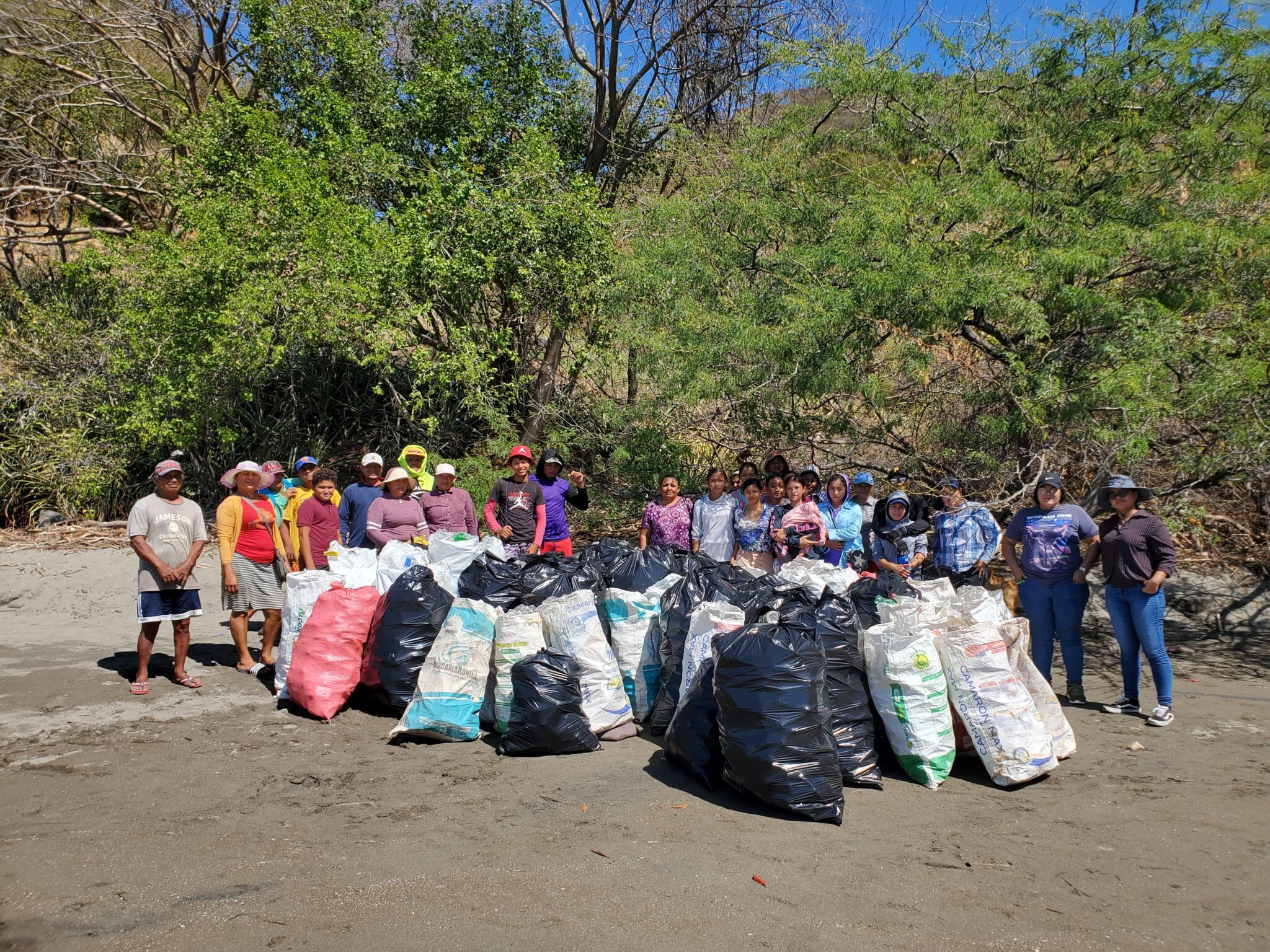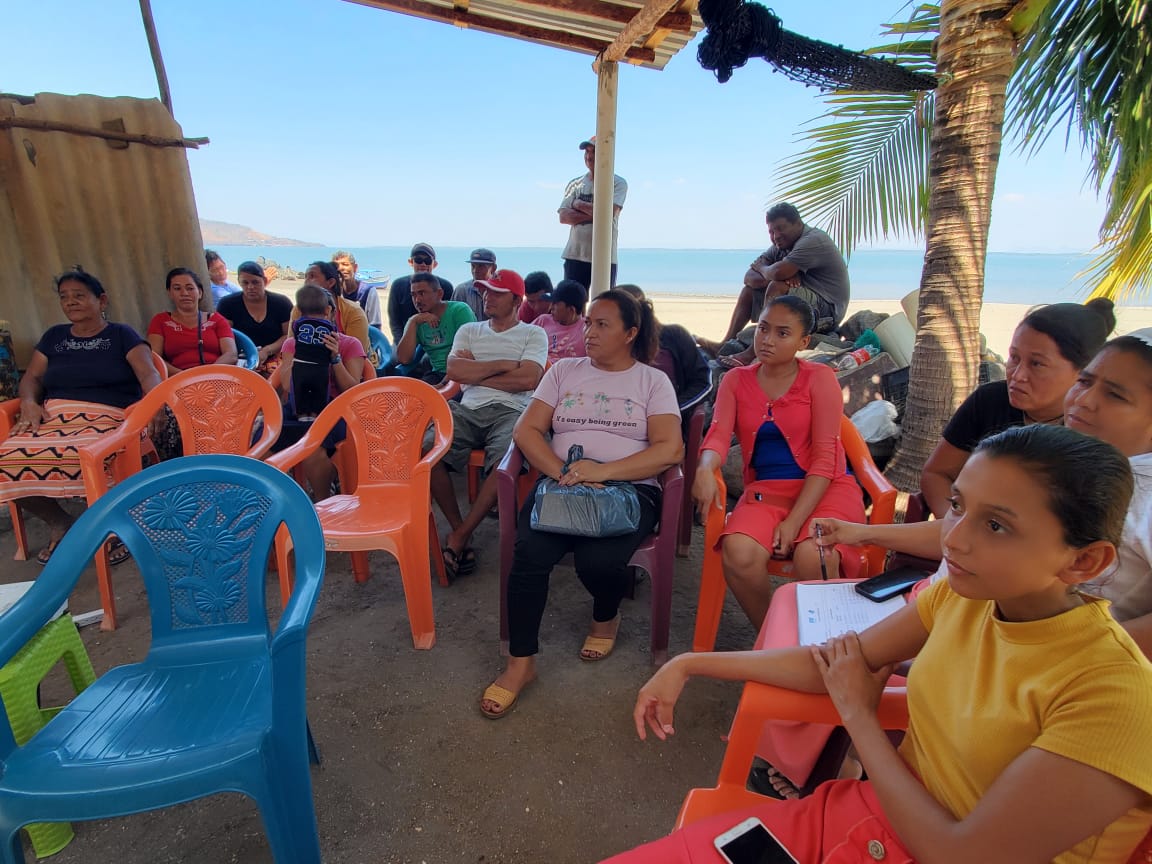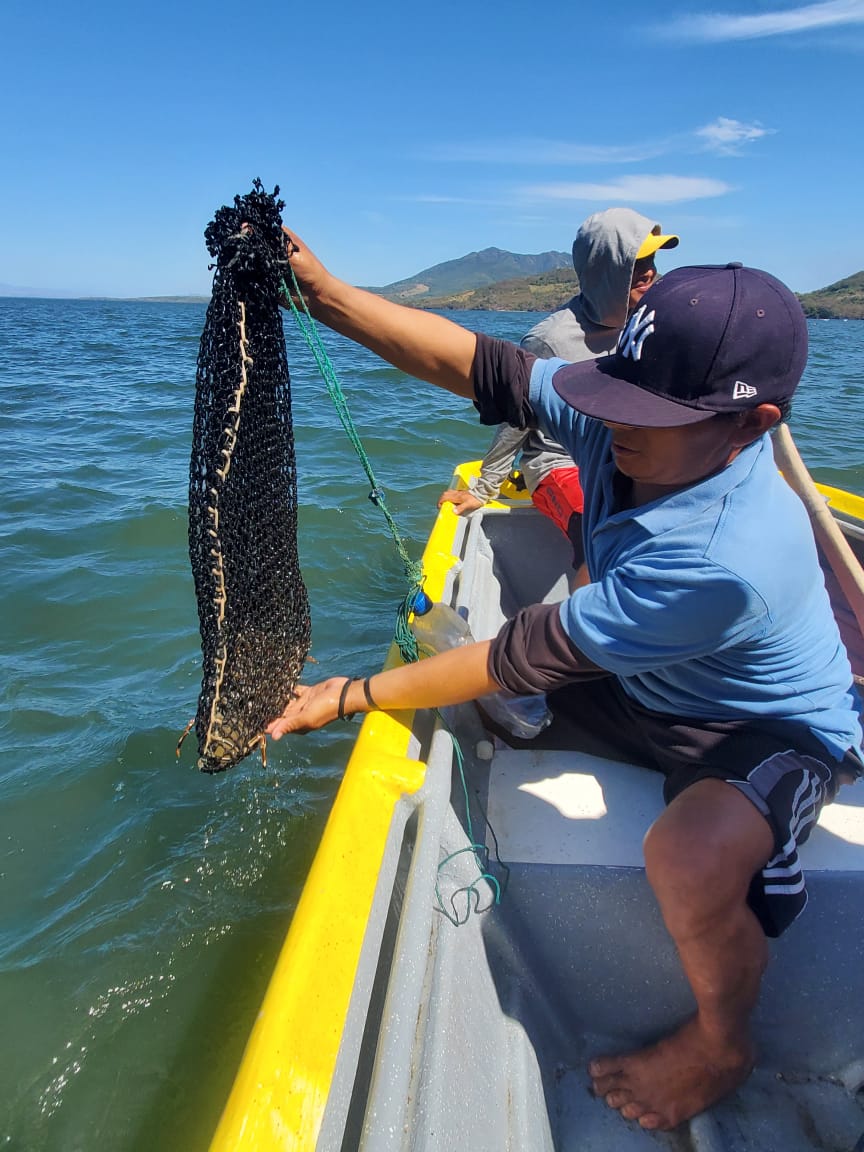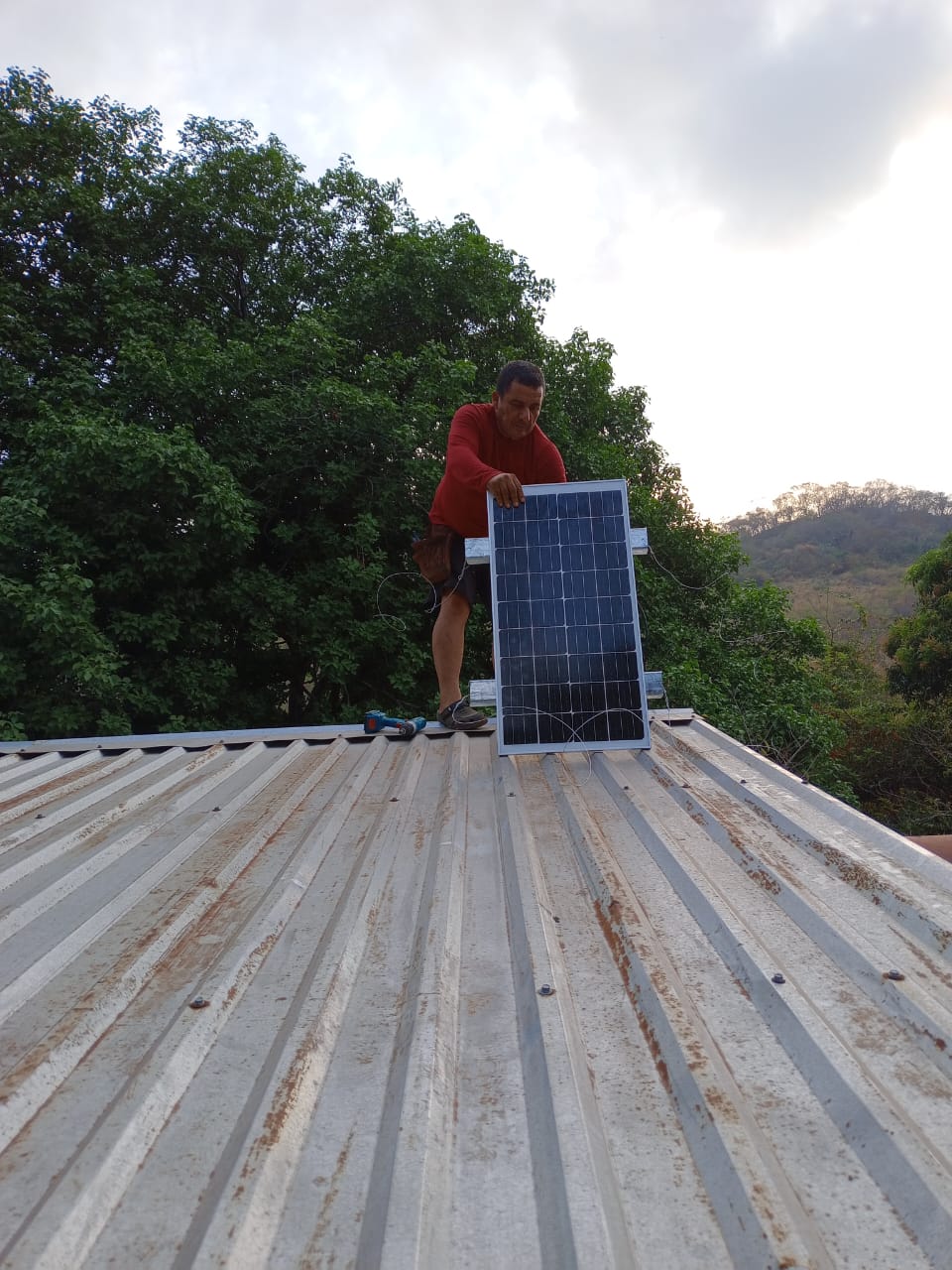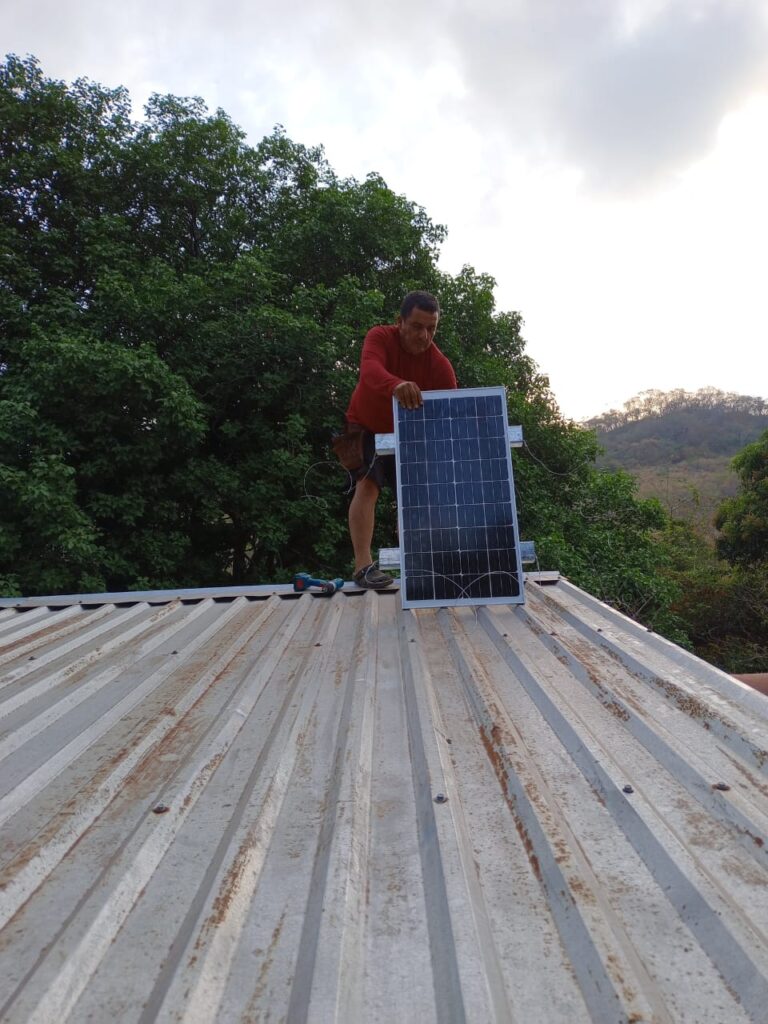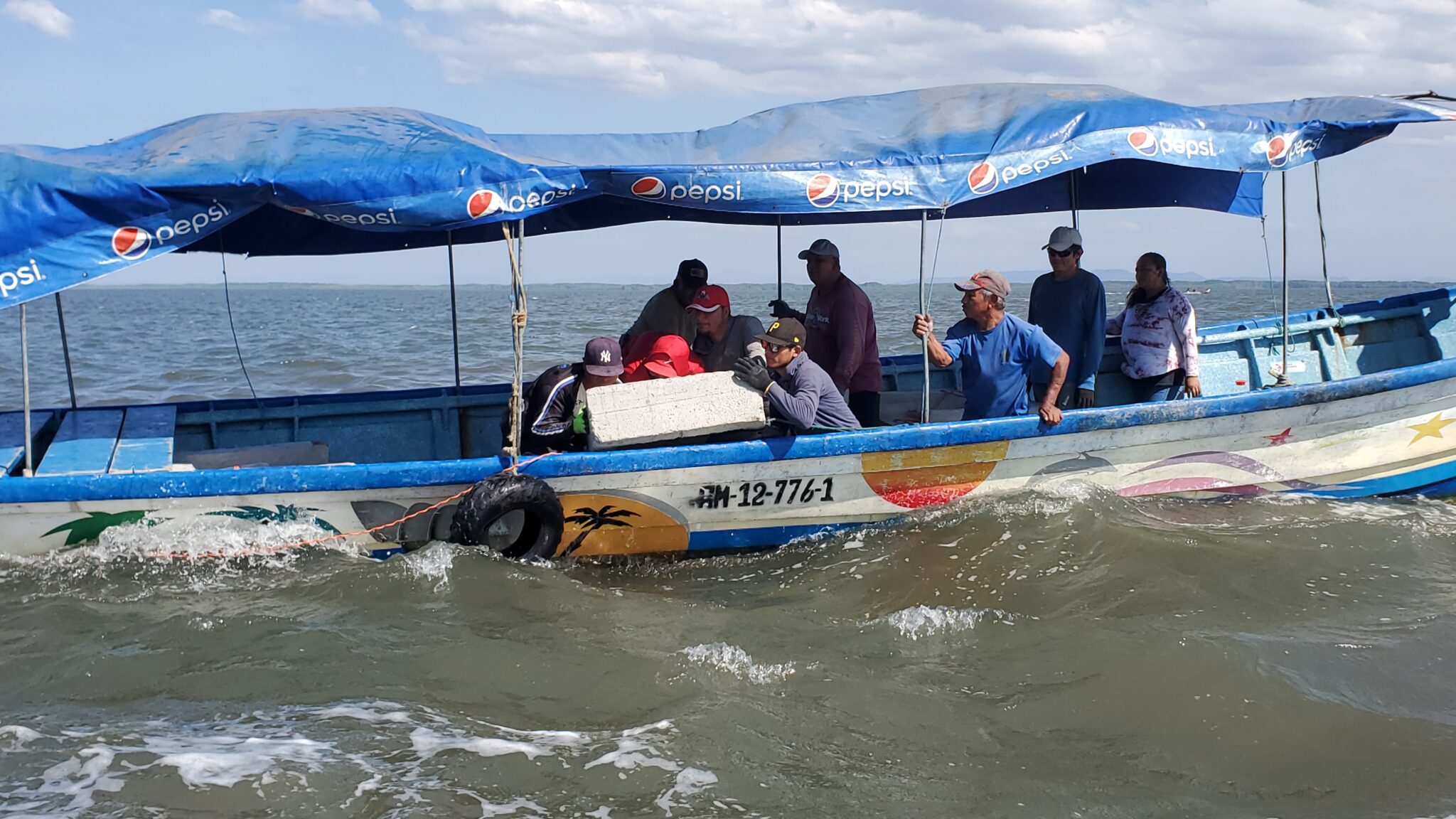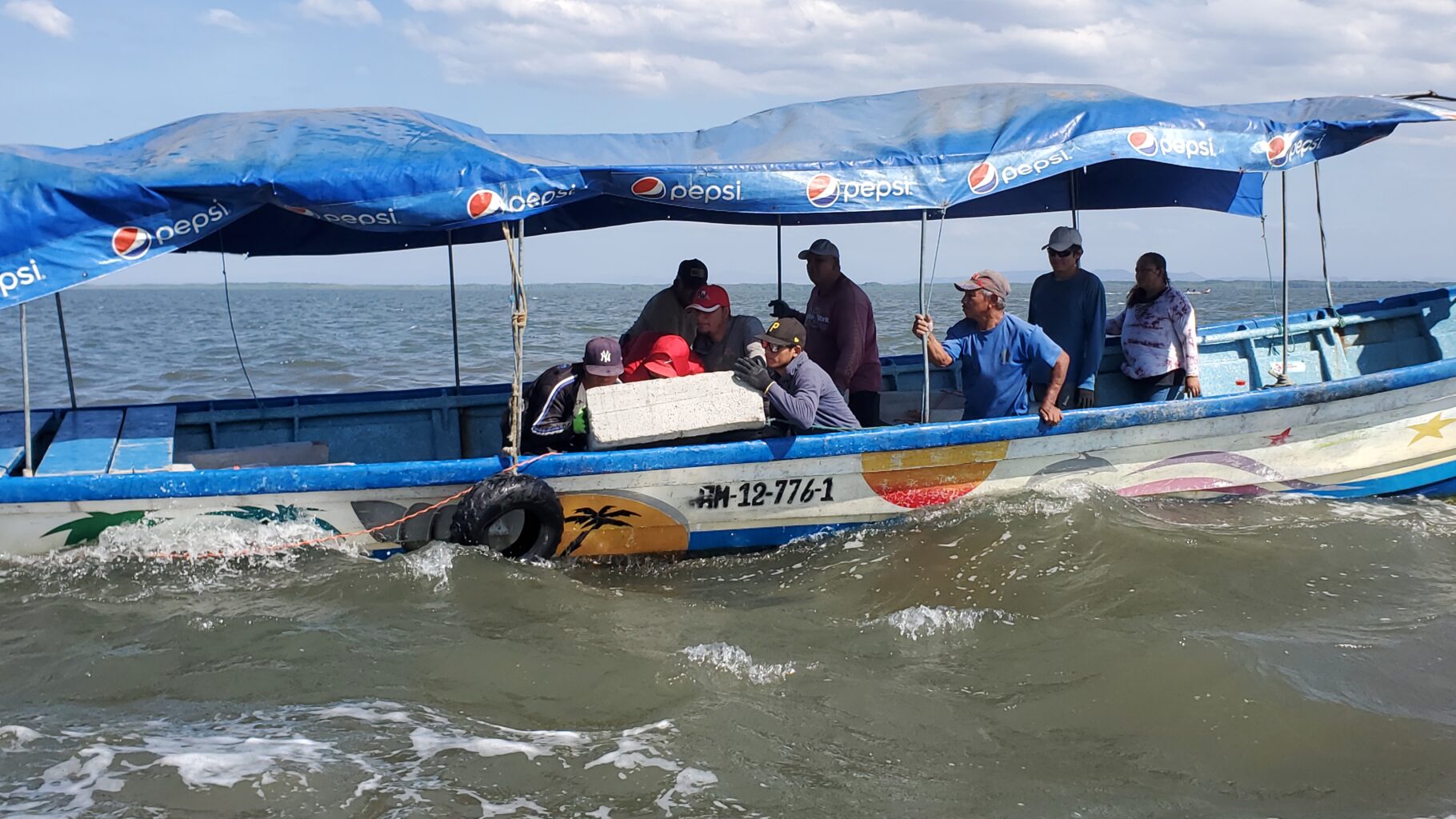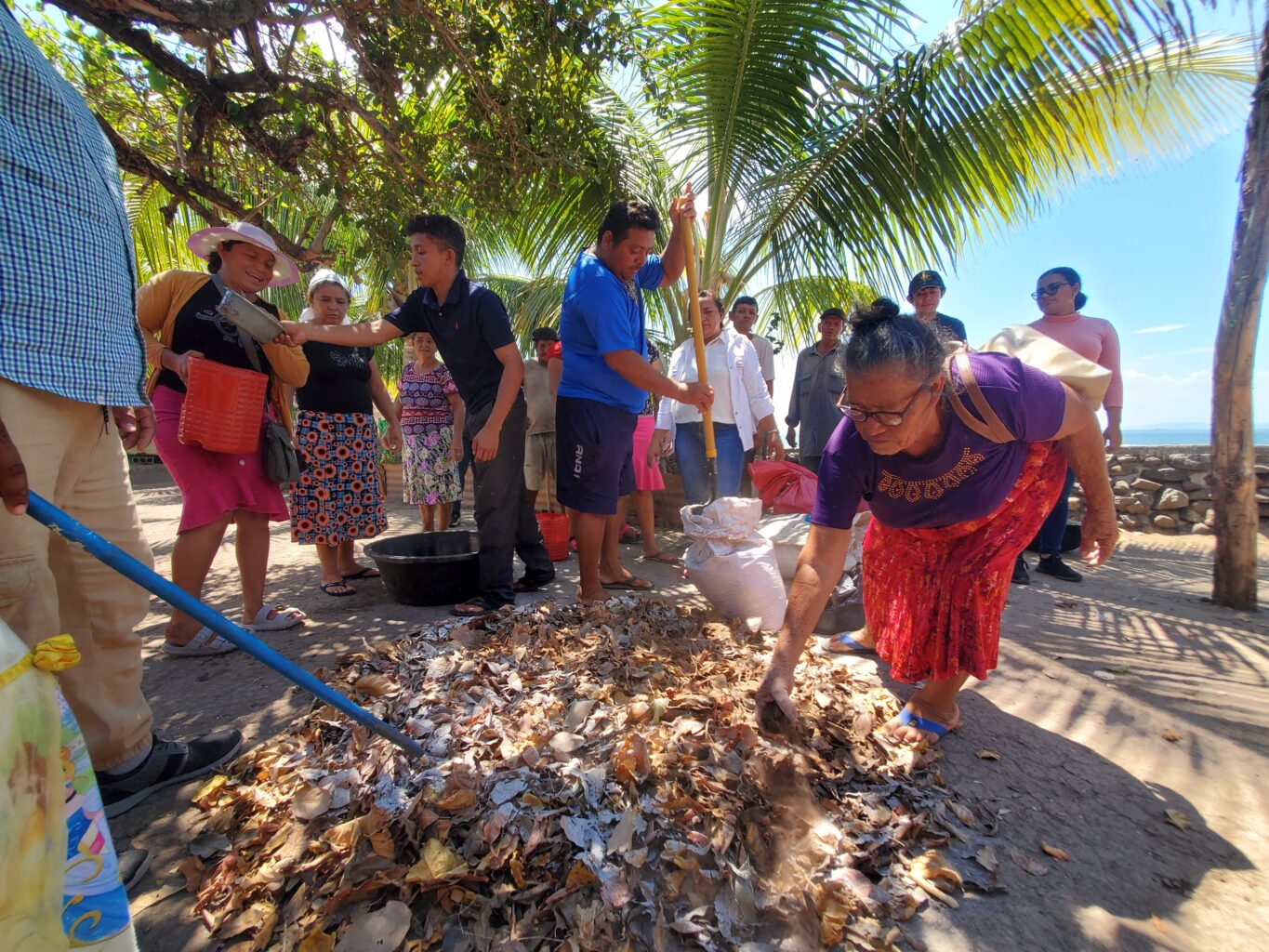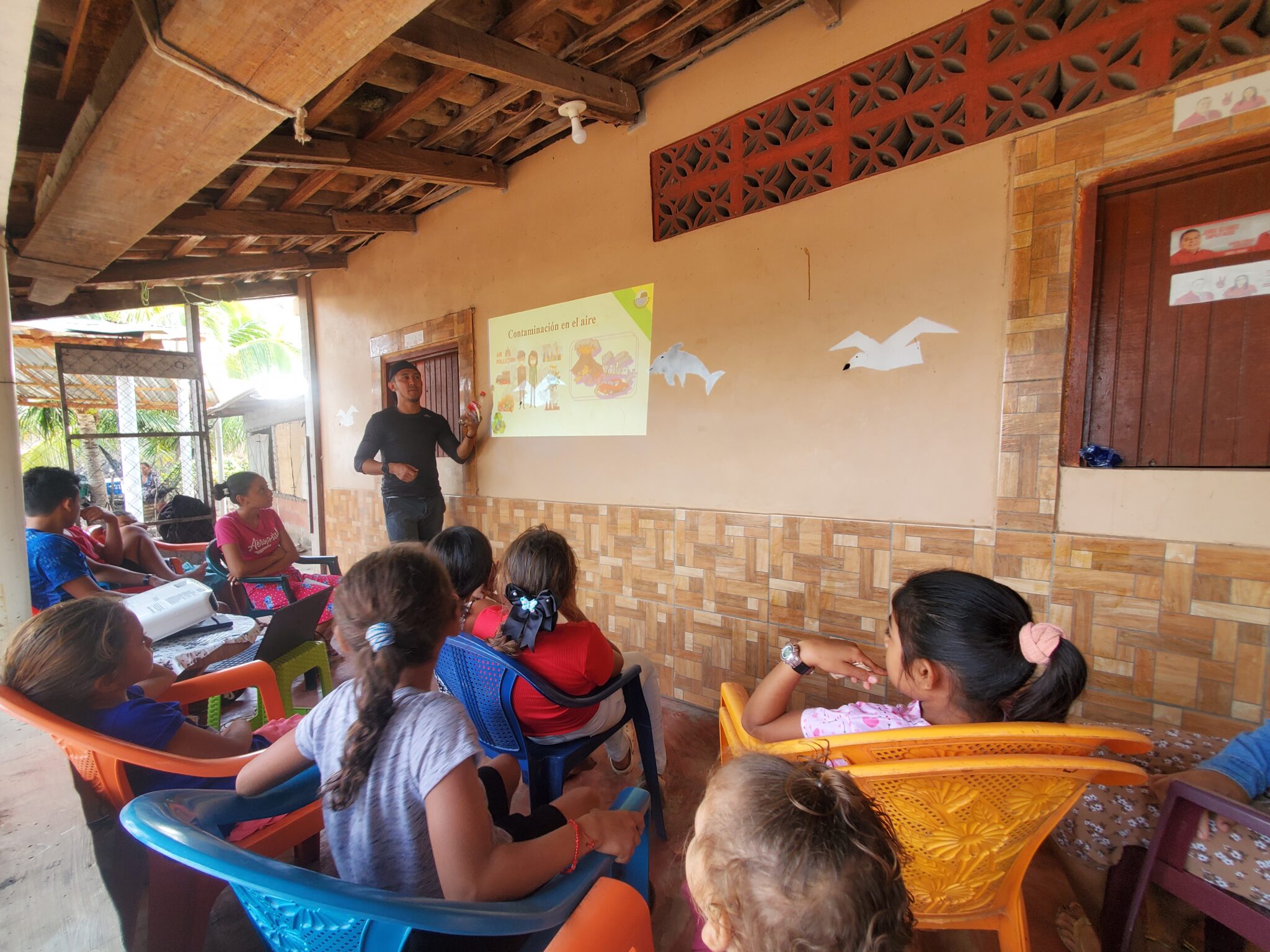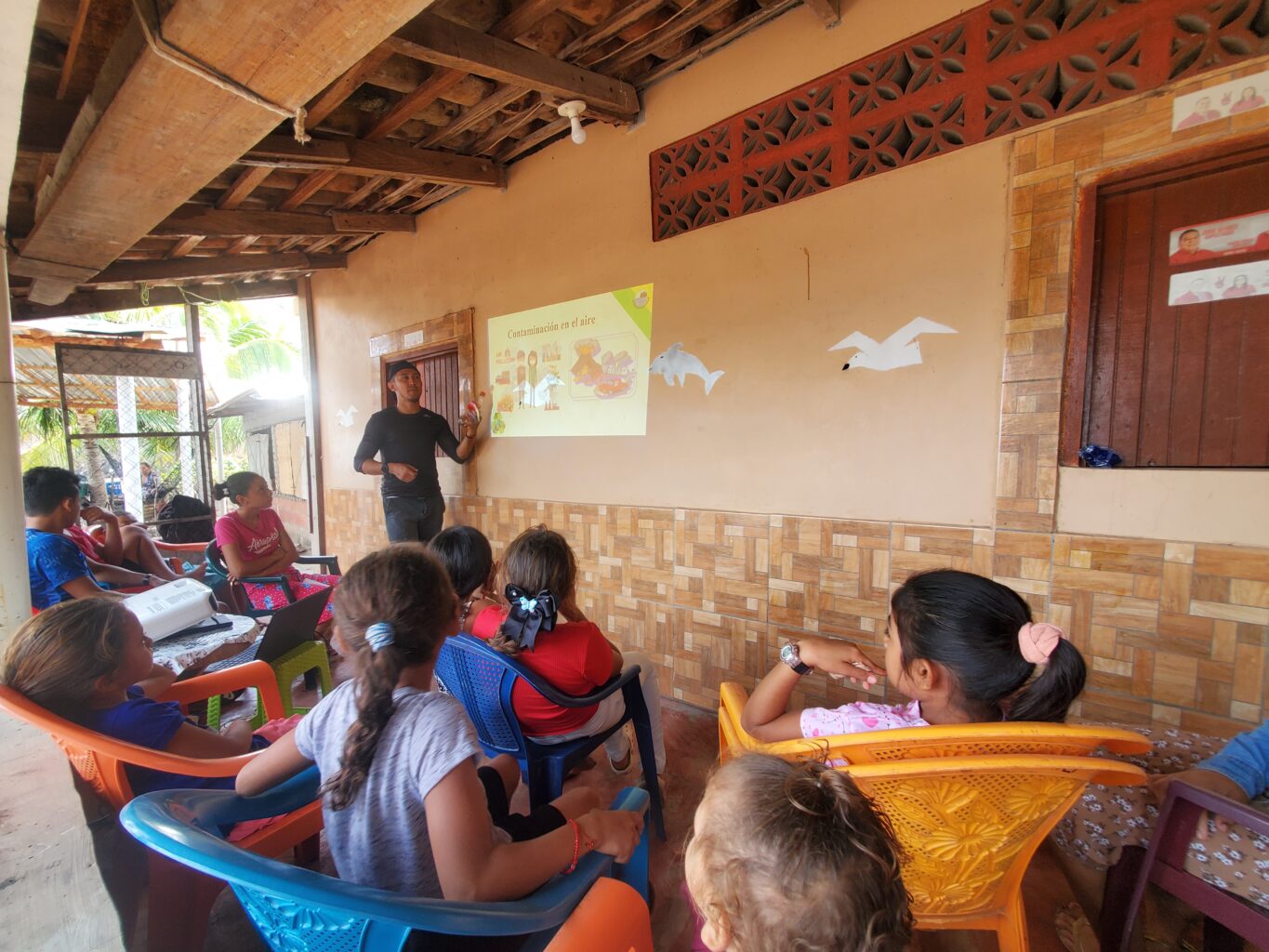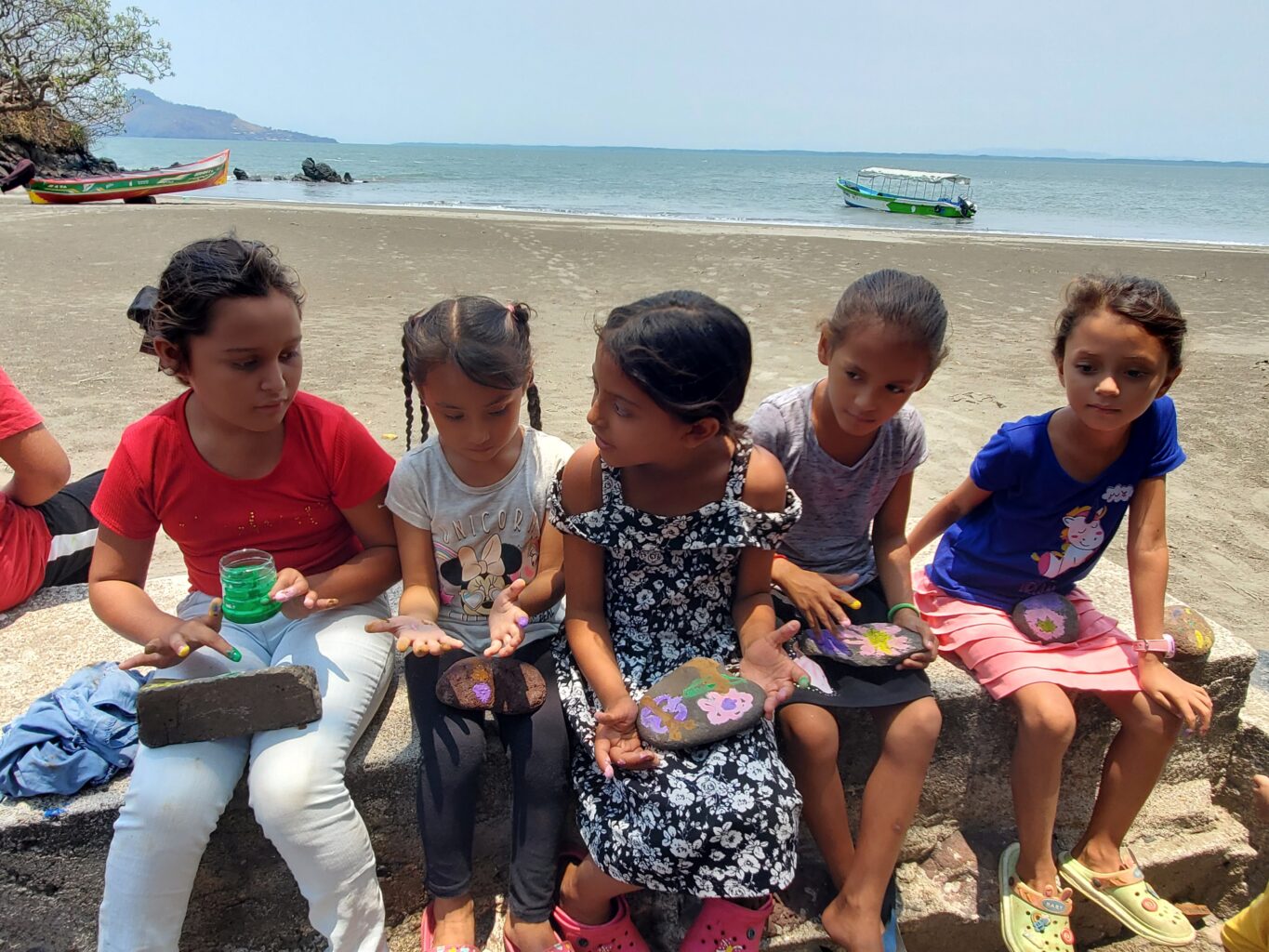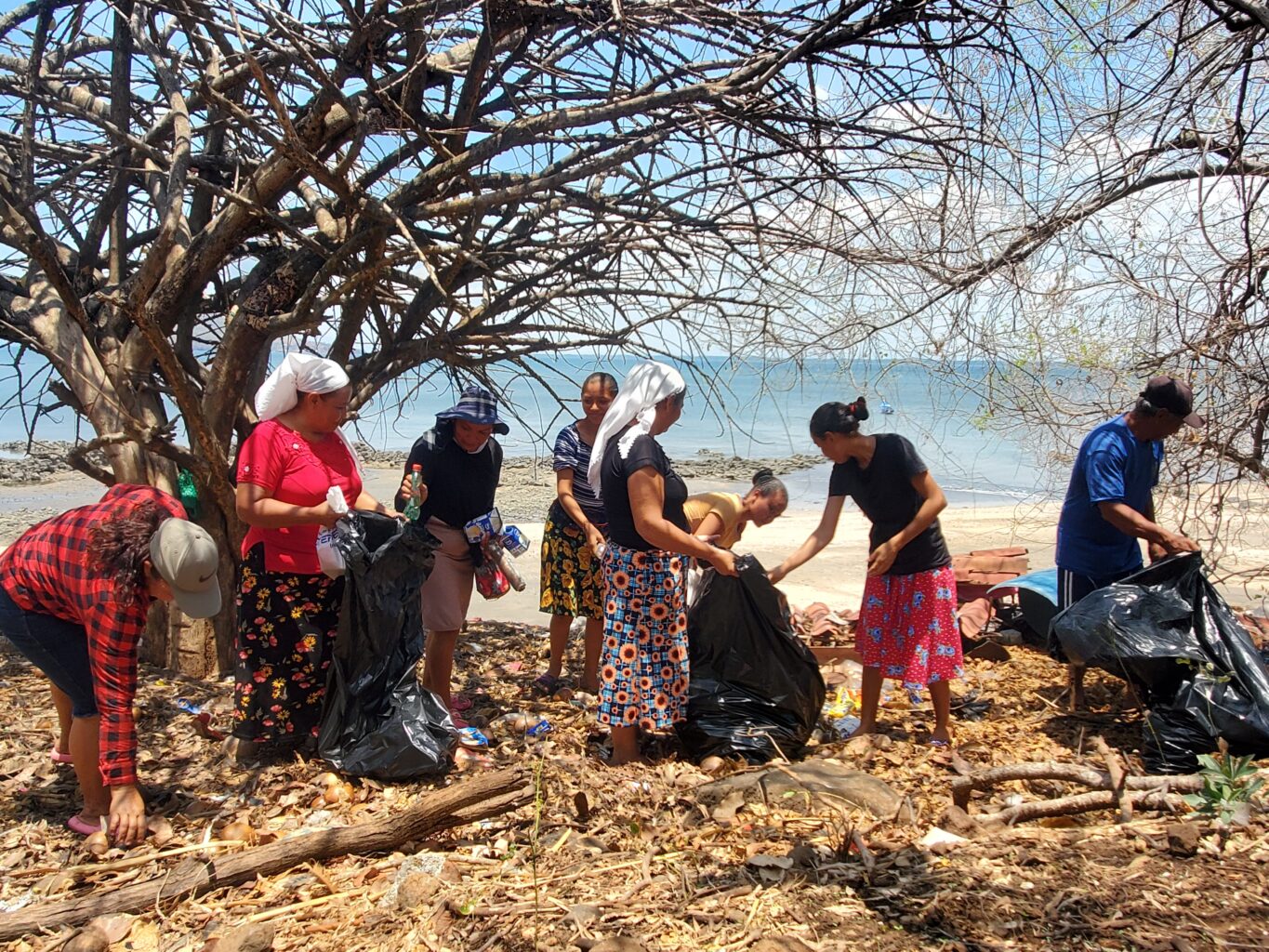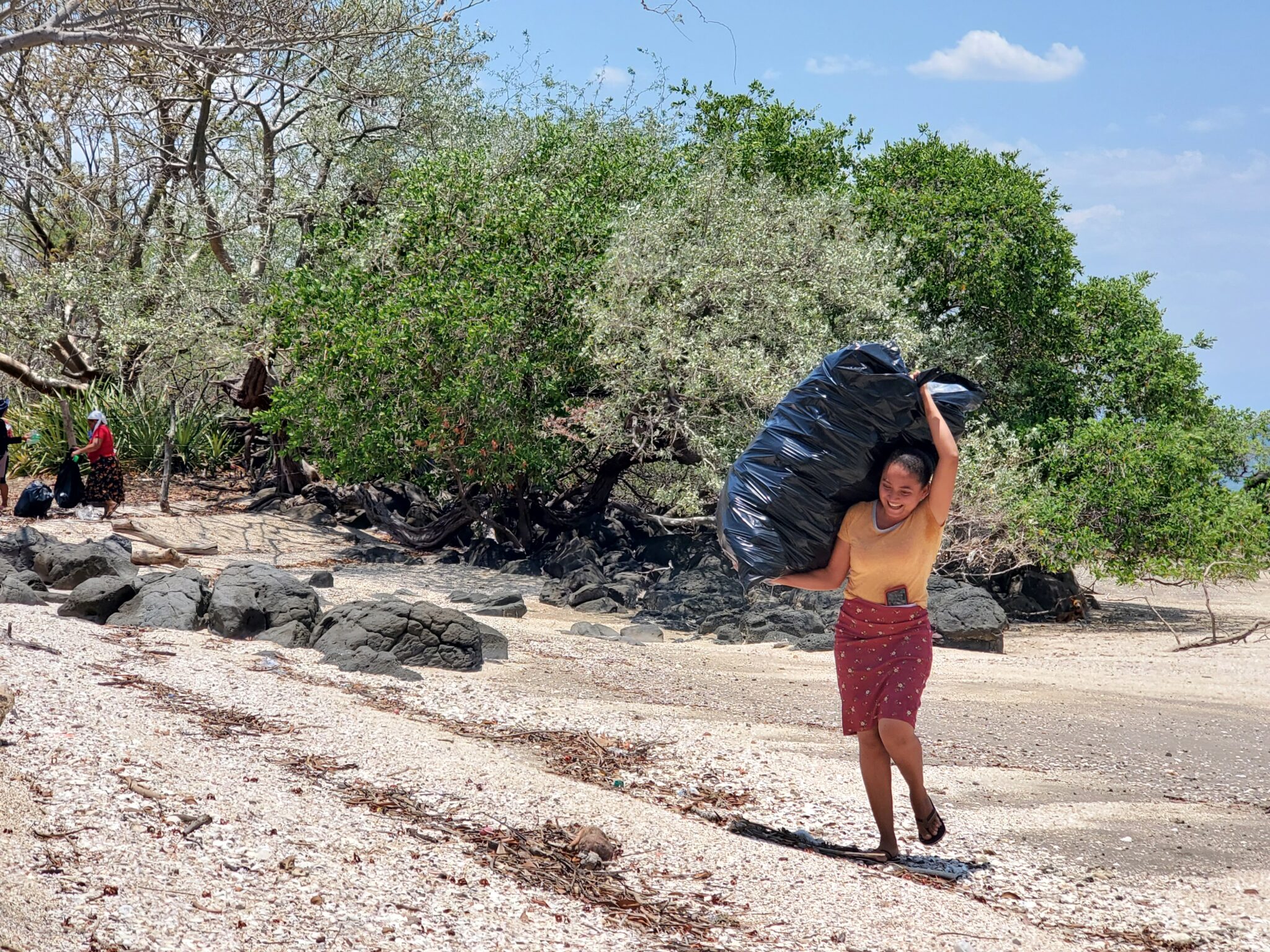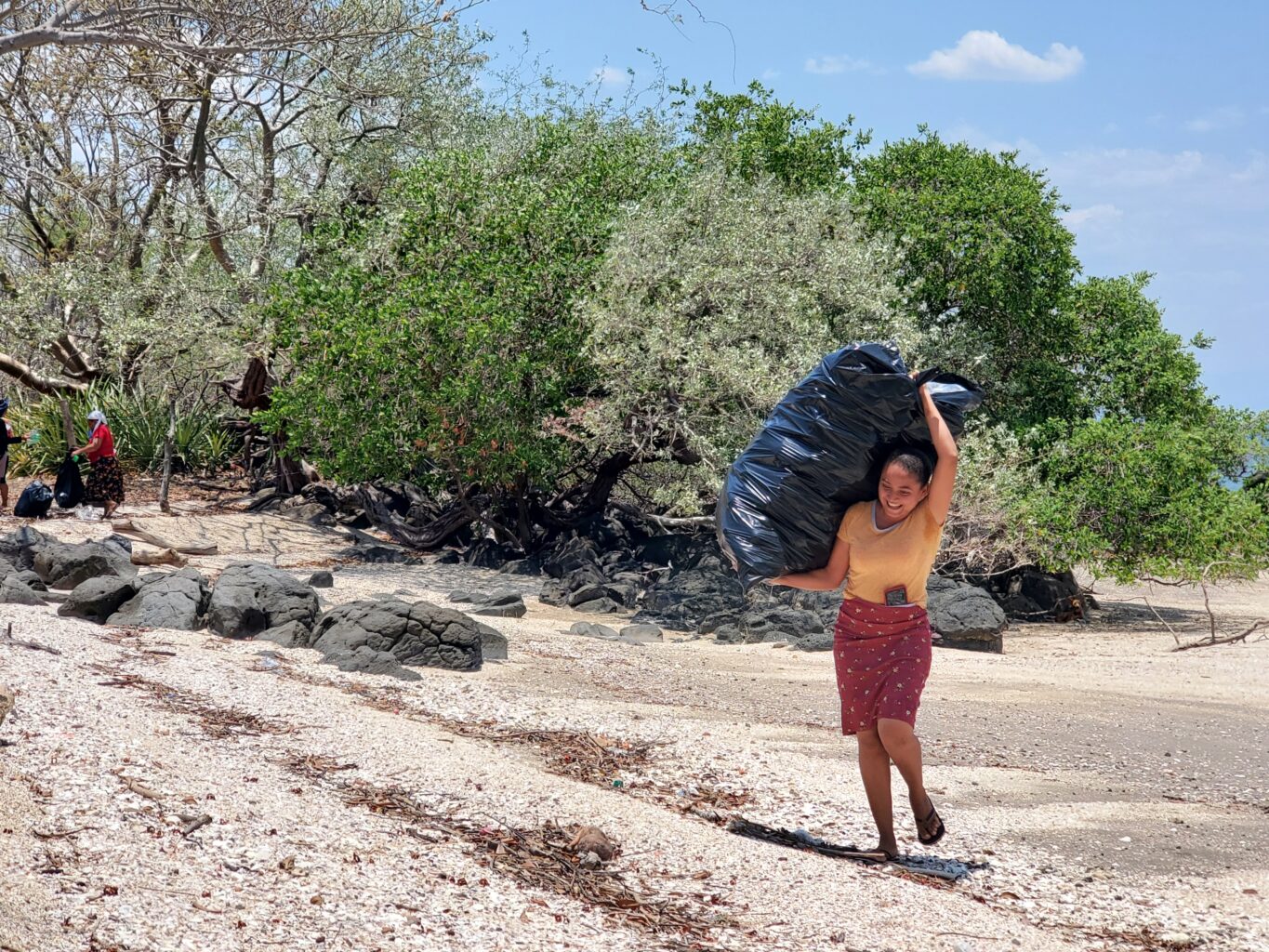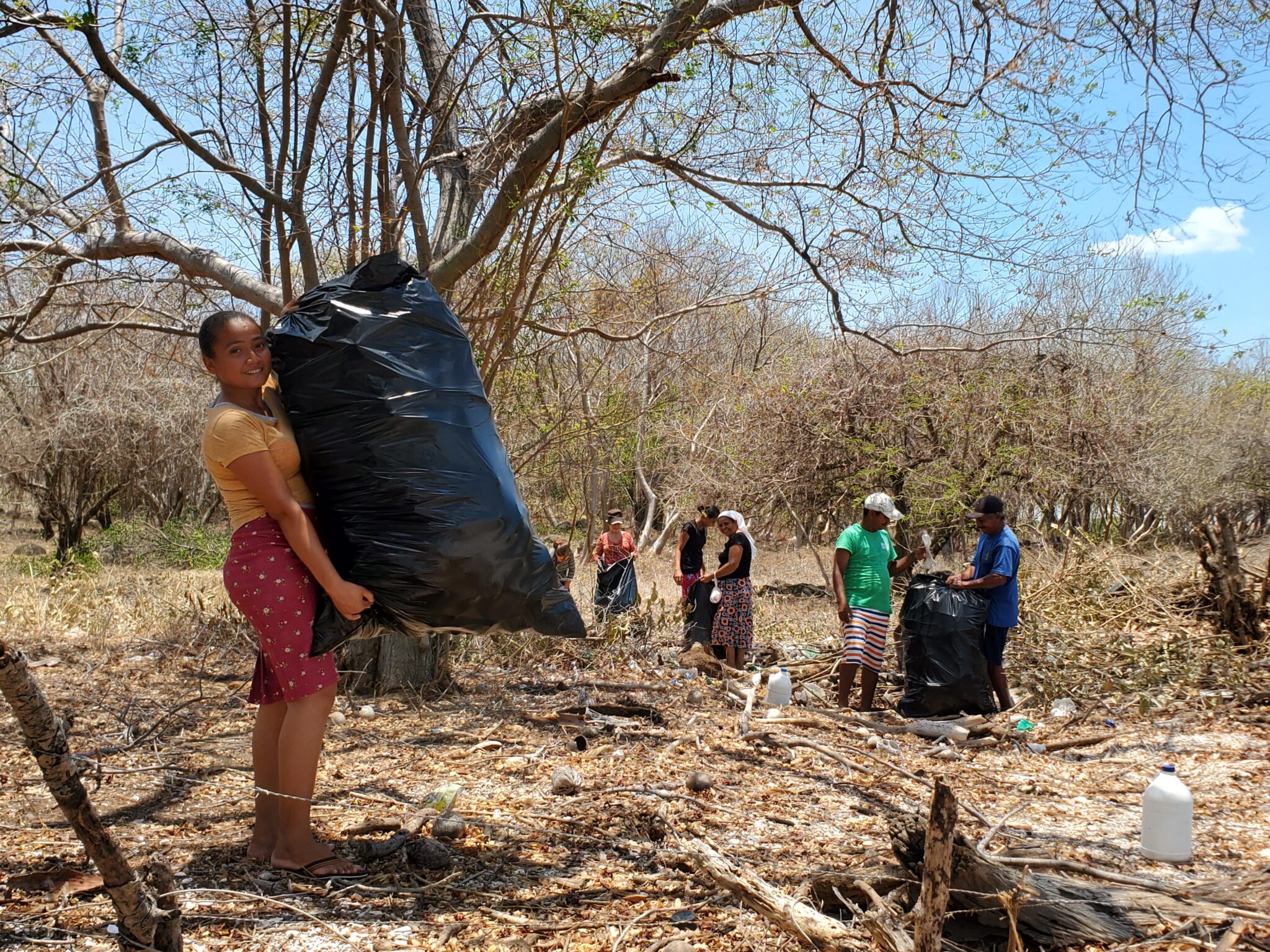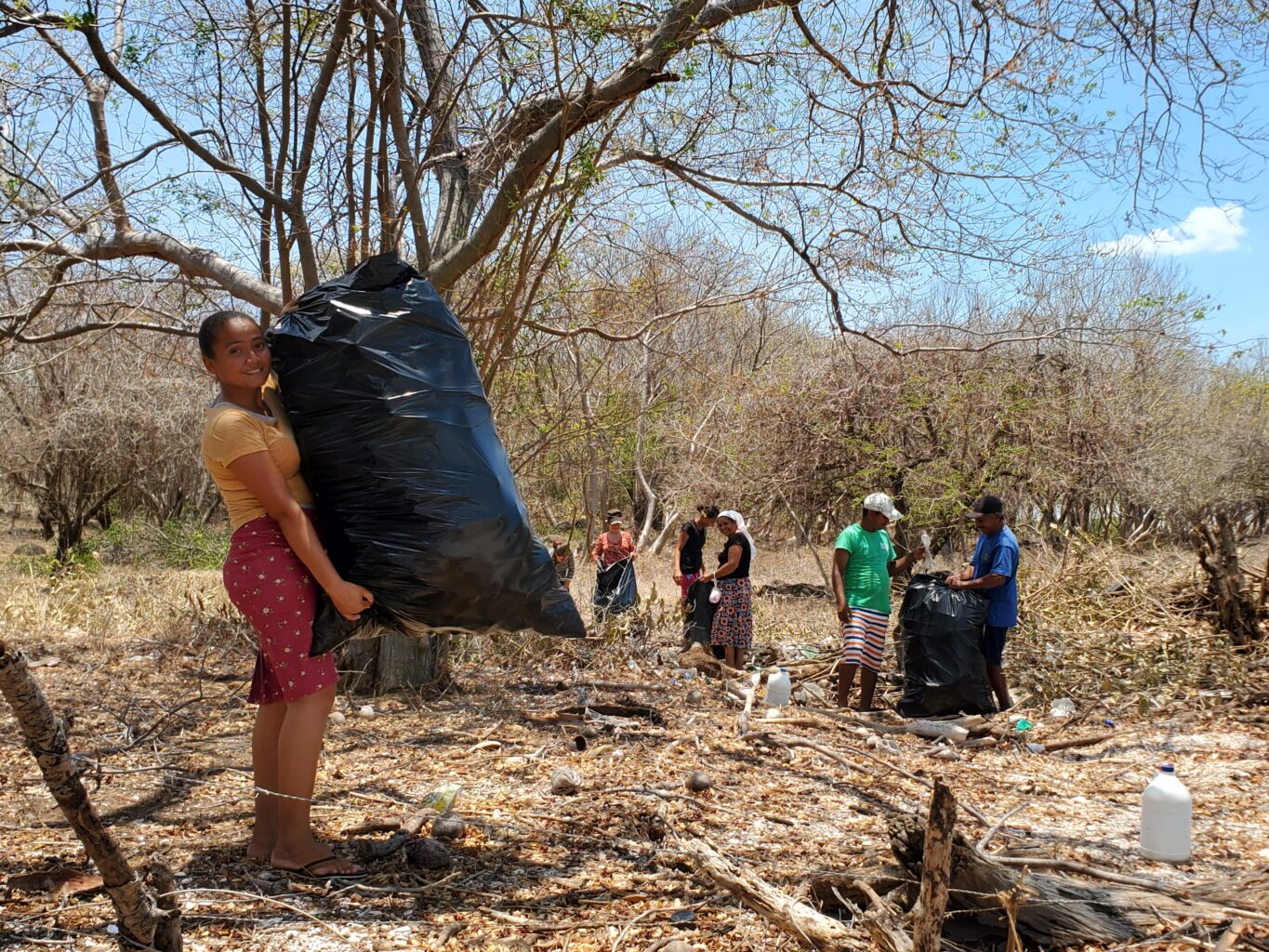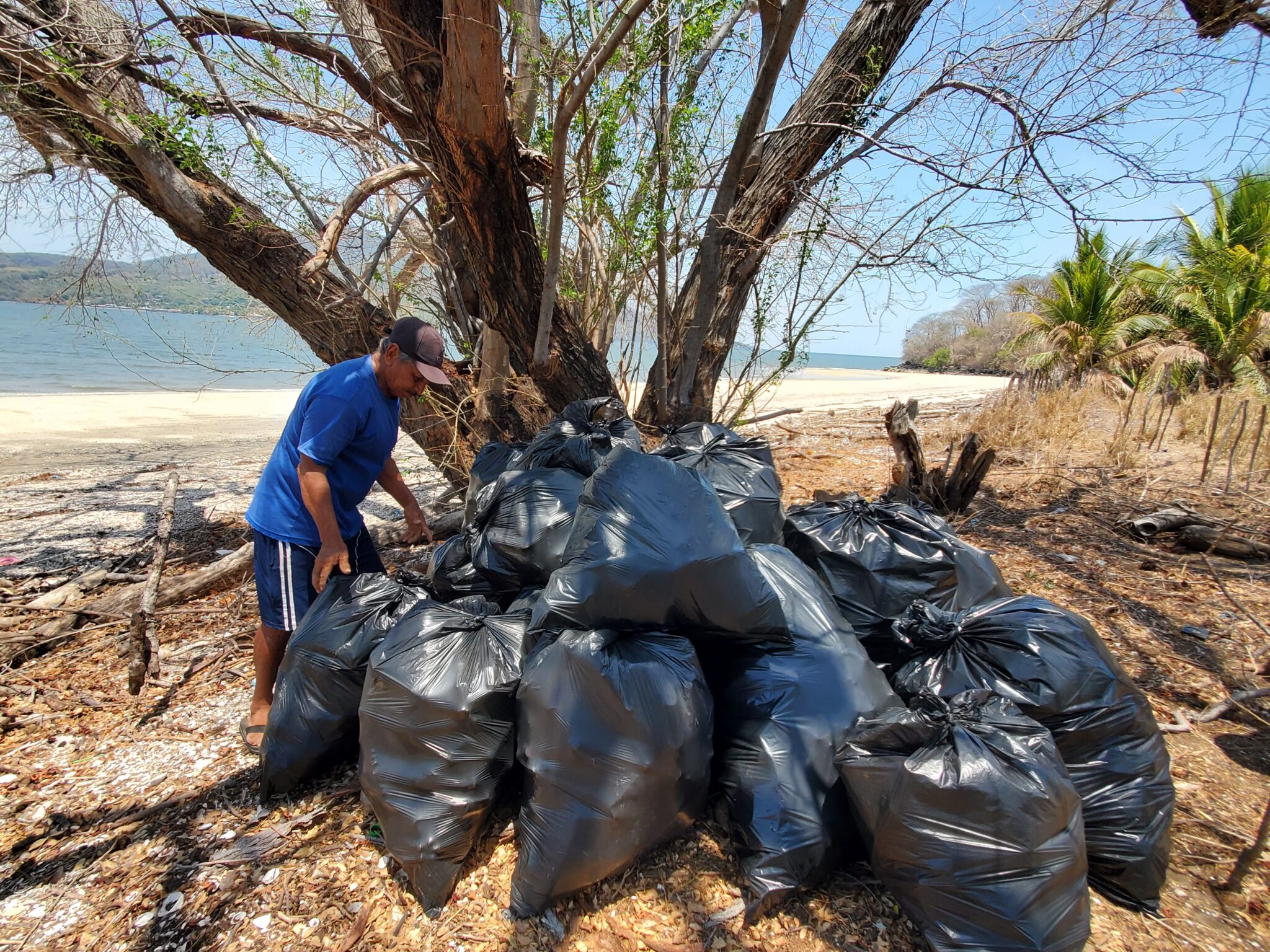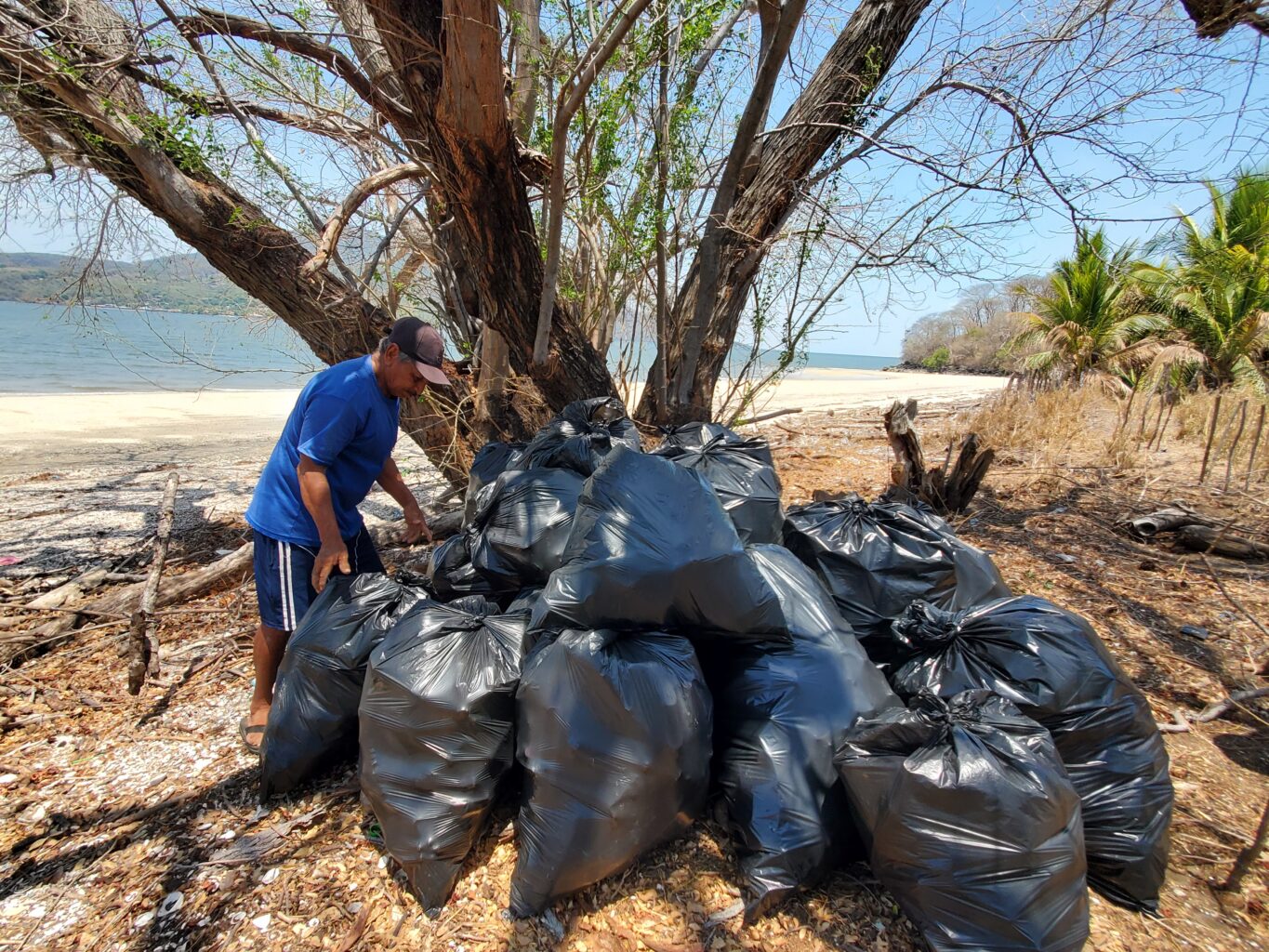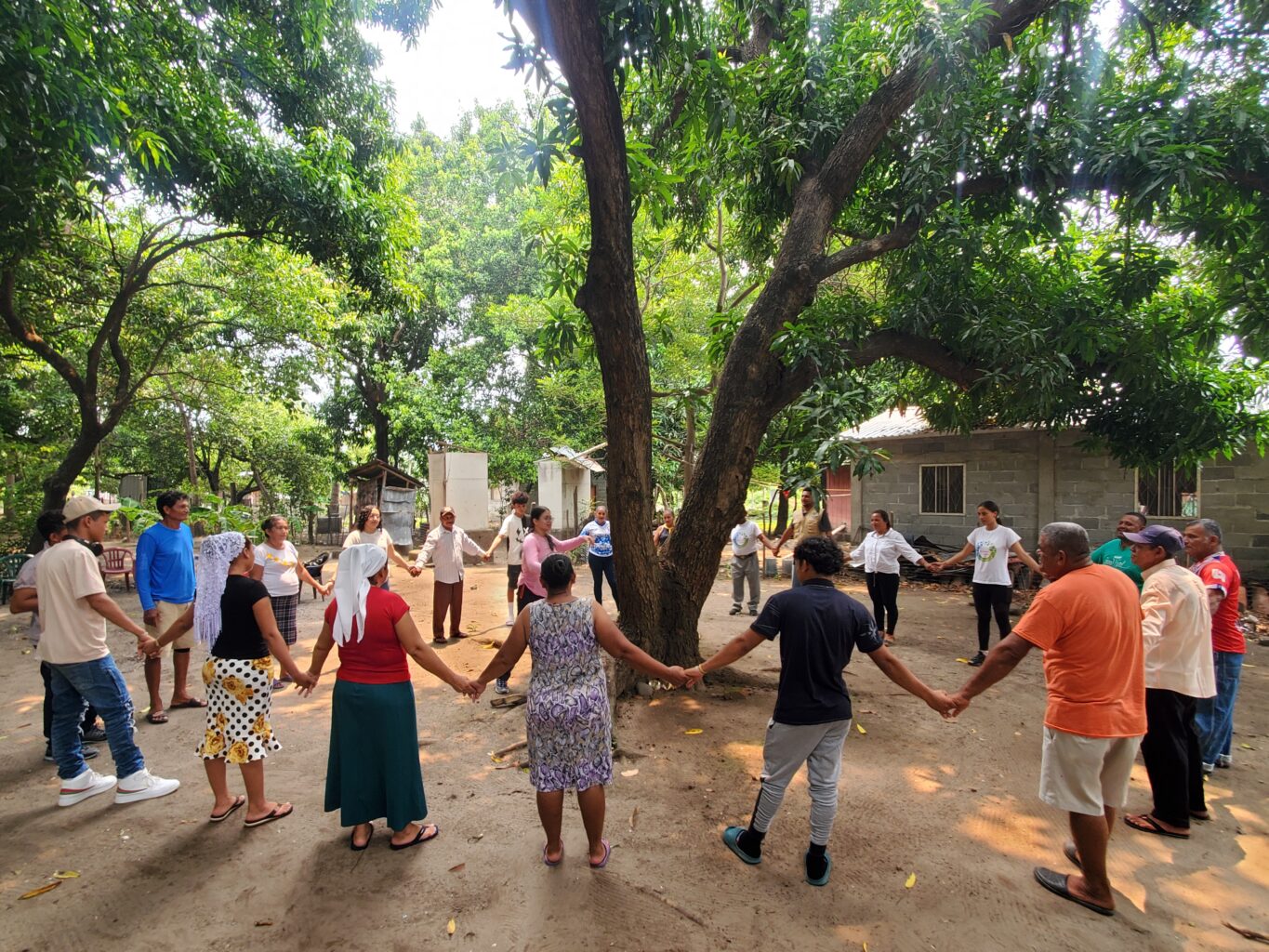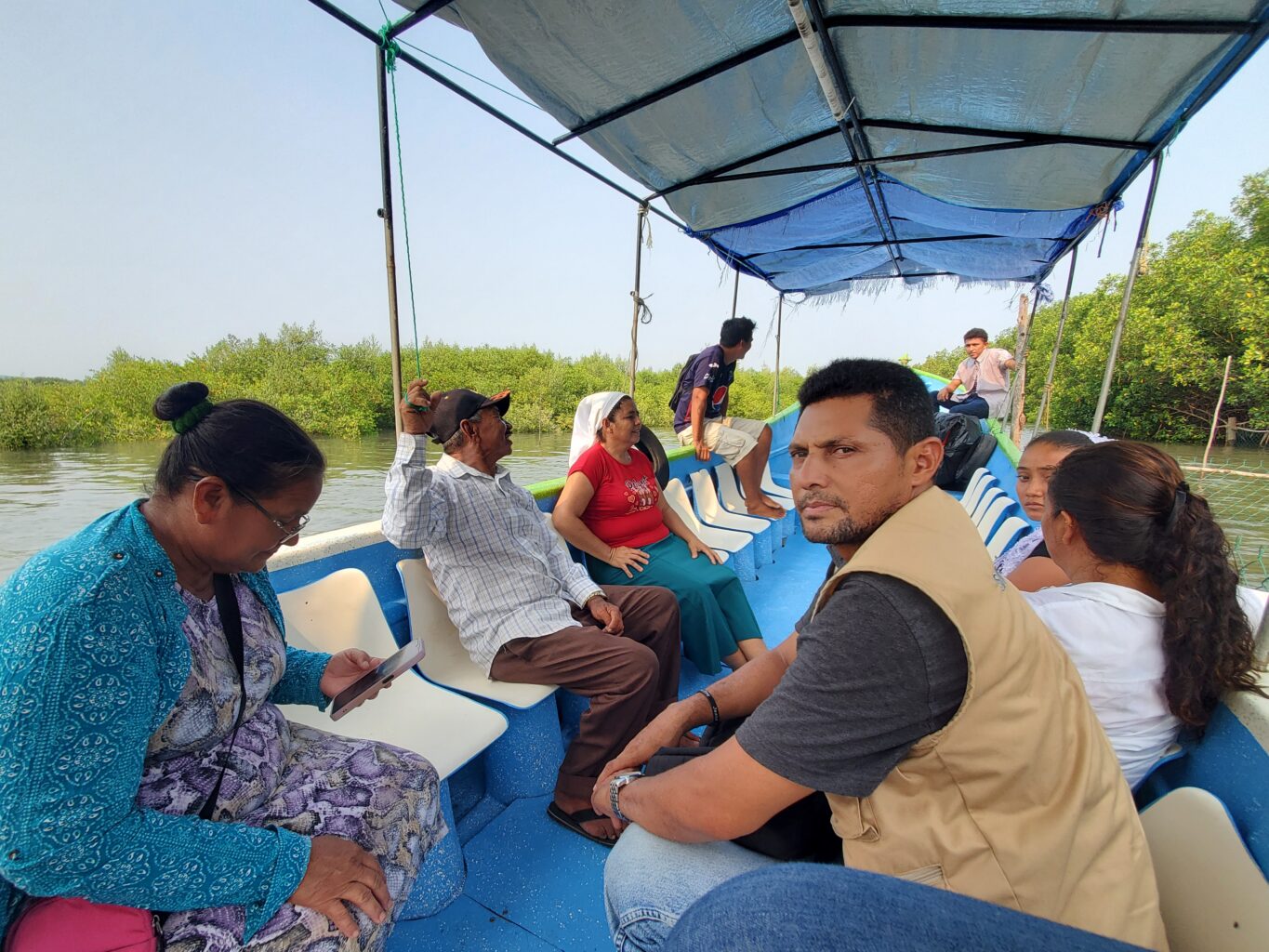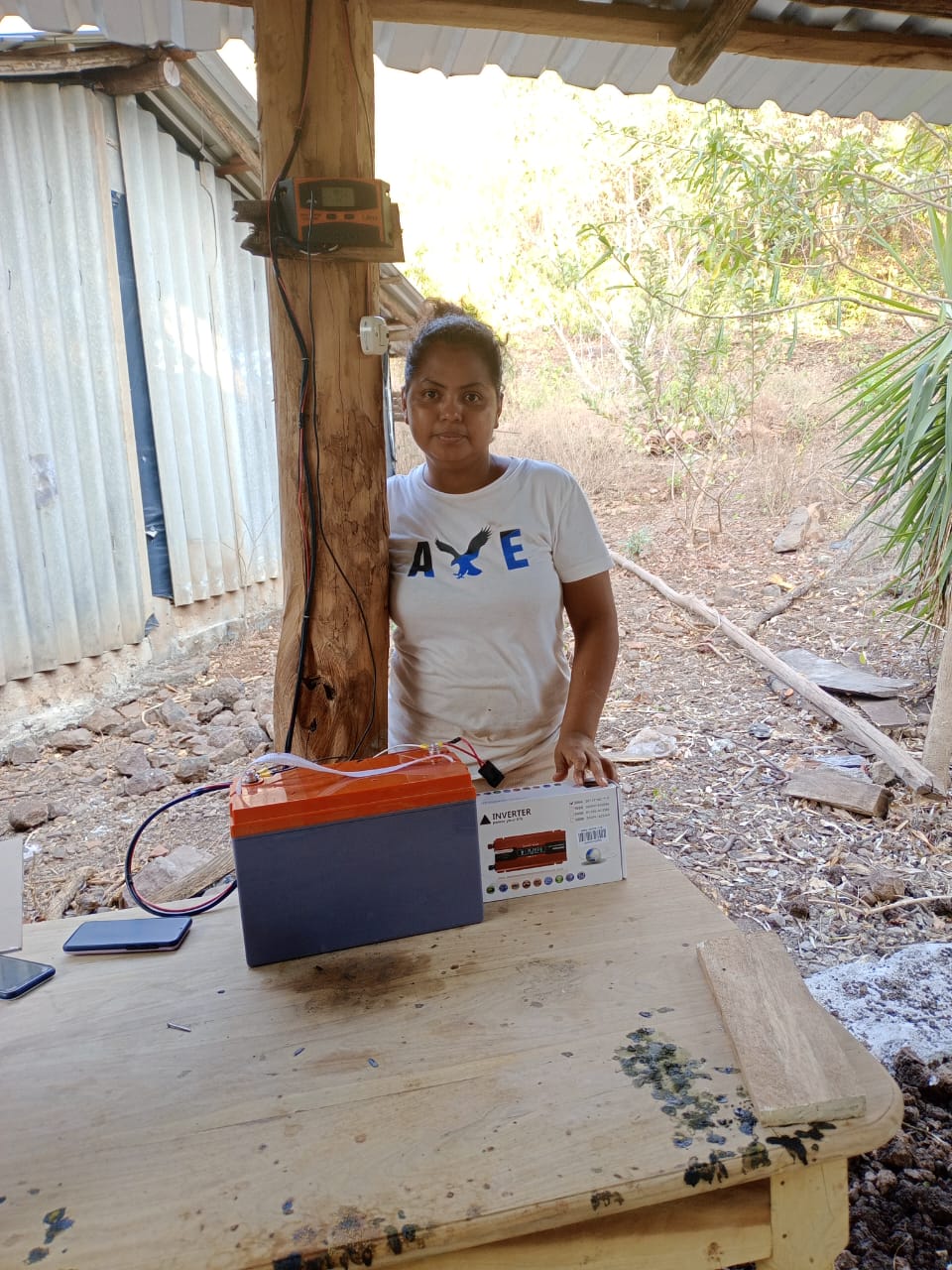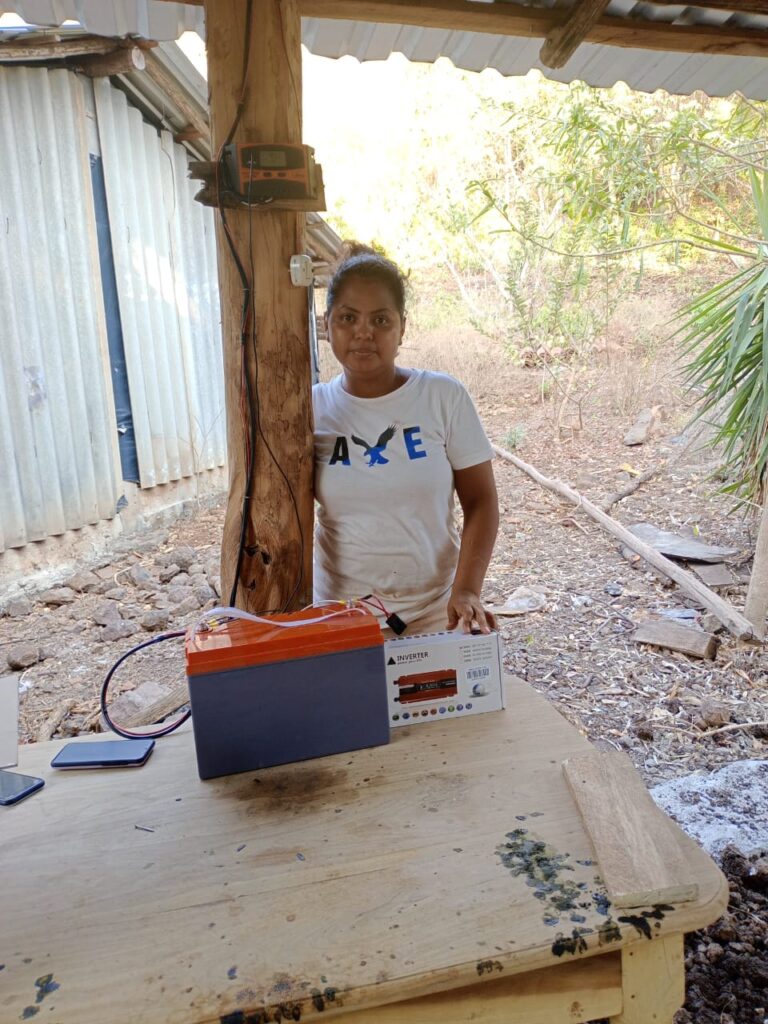On the Pacific side of Central America, Honduras, El Salvador, and Nicaragua meet at the Gulf of Fonseca. Mangroves line its shores, and the wetlands are a wildlife hotspot. The gulf is a primary nesting site of the critically endangered hawksbill turtle. Pelicans, ibises, frigatebirds, parakeets, bitterns, and the wonderfully named wandering tattler are just some of the many birds found there.
People who live on islands in the gulf make a meager living by harvesting clams, lobsters, and fish. Their catches have declined because of climate change, illegal fishing, and the widespread destruction of mangrove forests, which were torn out for shrimp ponds.
This project will protect a 100-meter-wide band along the coastlines of three gulf islands. Two of the islands, Exposición and Inglesera, are inhabited; Pacar, houses a research and environmental education center. The Exposición and Inglesera communities will not fish or collect shellfish in the no-take zones and will monitor the beaches to make sure no one else does. They will also install small lobster shelters to help keep lobster populations healthy.
Much of a Seacology grant will be used to buy solar panels. Exposición and Inglesera have no electricity, forcing people to use candles for lighting and car batteries to run fans and other small appliances. Without refrigerators, fishers can catch only small quantities of fish and sell them quickly to local packing companies at whatever price is offered. Solar power will ease families’ daily lives, end their reliance on car batteries (a source of hazardous waste), and improve their livelihoods. Our partner, the Committee for the Defense and Development of the Flora and Fauna of the Gulf of Fonseca (CODDEFFAGOLF) will also work with the communities on other ways to reduce, reuse, and recycle their waste.
CODDEFFAGOLF is a strong local organization that began as a fishermen’s cooperative more than 30 years ago. Their projects protect sea turtles, fight illegal fishing, reduce ocean pollution, and promote sustainable development.


